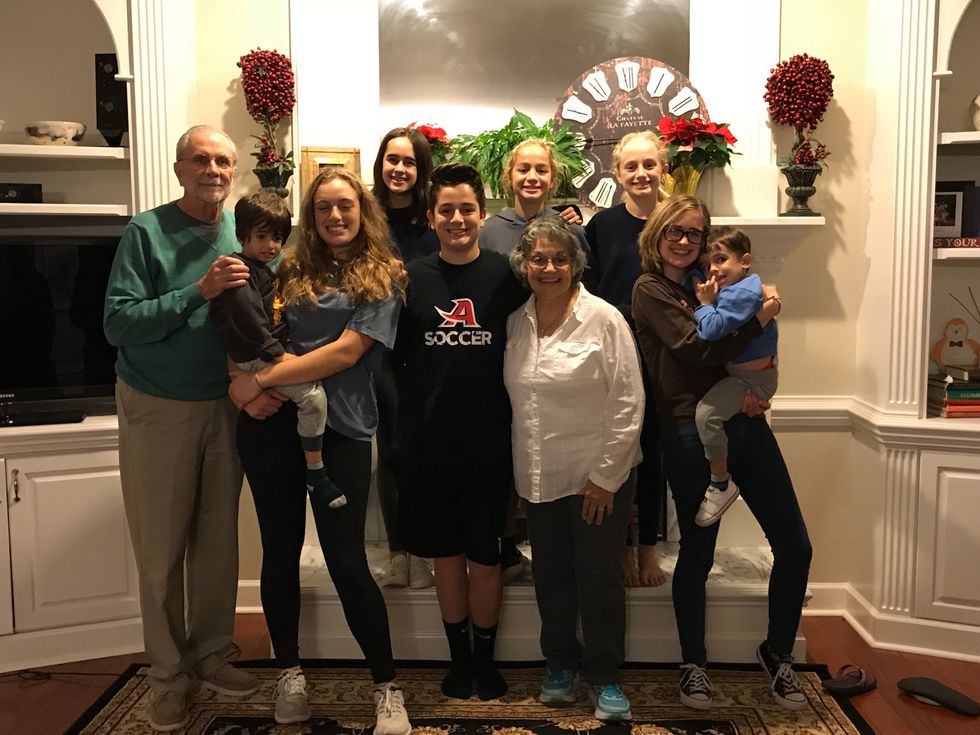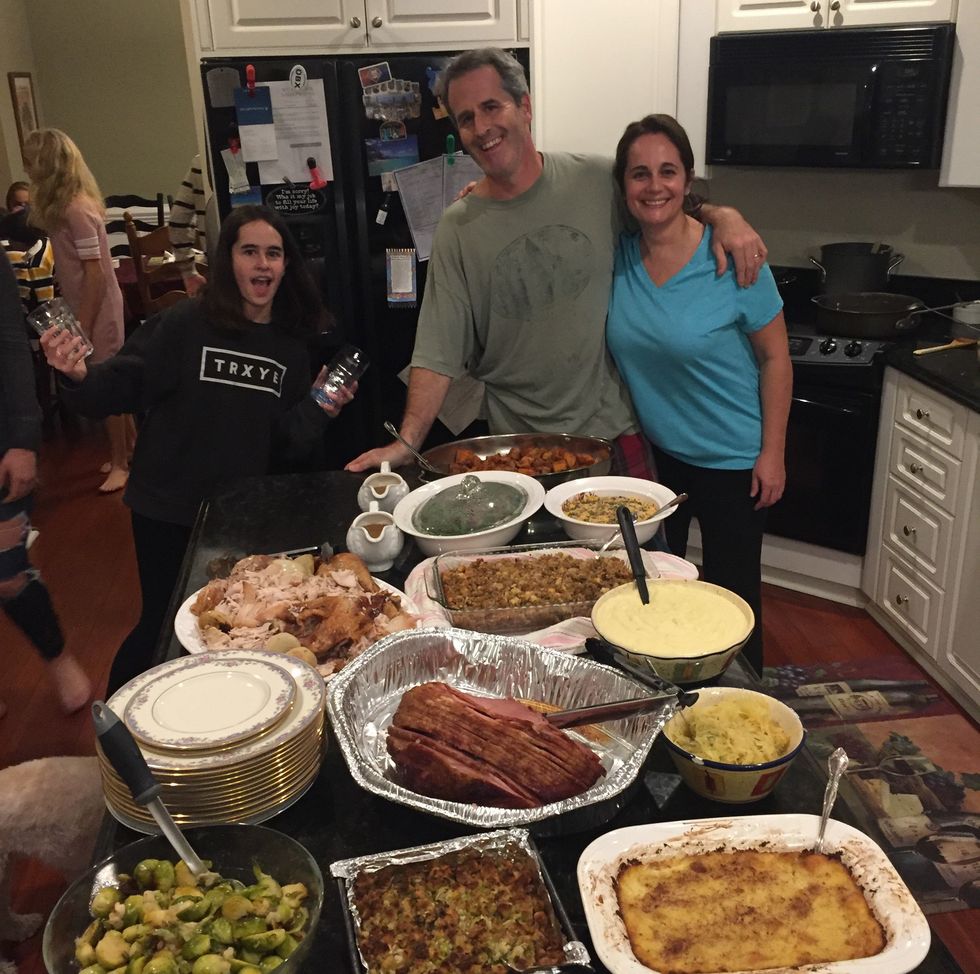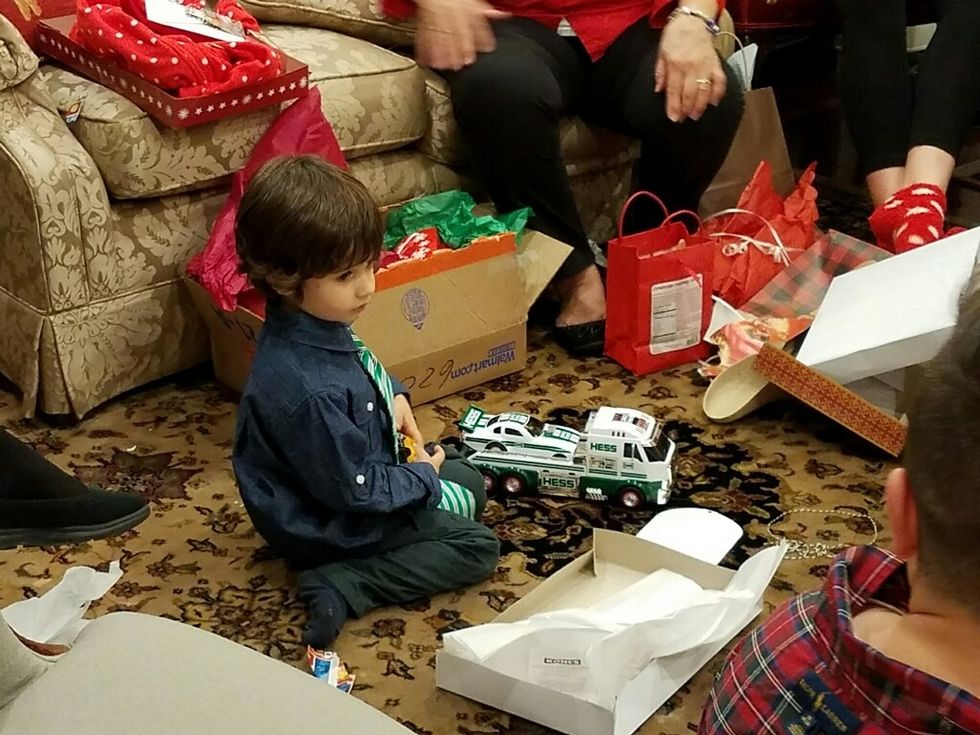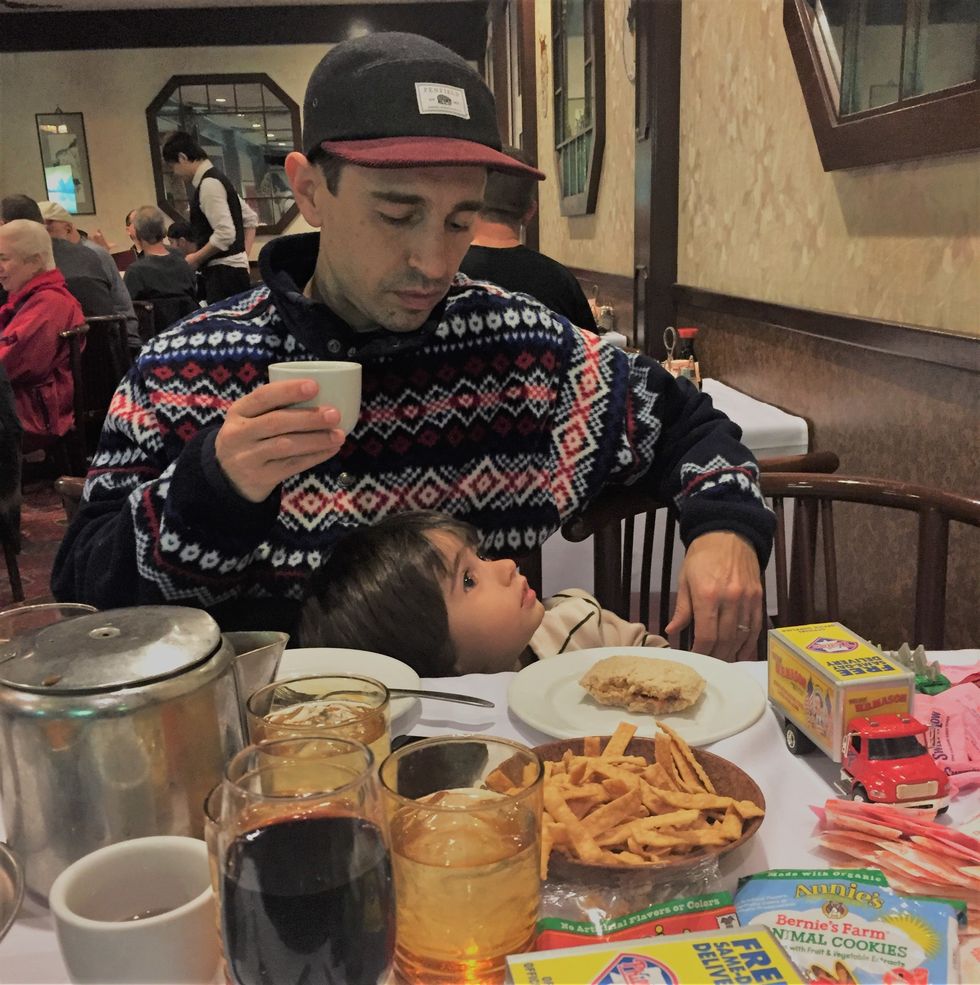Halloween, Thanksgiving, Christmas. All holidays with a large food component (be it candy, eggnog, or literally a whole feast) and all holidays that fall one after the other.
Dealing with this can be tough for anyone and especially tough for those like me who are in recovery from, or even still battling, an eating disorder.
The holidays can be stressful and overwhelming, especially when you add not just the heating element but also the family-time, parties, and various events. We all need a little help sometimes, so here I've compiled a list of advice that has worked for me, many others who are also struggling, and even tips from experts.
DISCLAIMER: I am in no way an eating disorder specialist, and I have no guarantee these tips will work for you and you're a particular eating disorder. This list does not replace a therapist, I am only a friend writing an article that I myself would have liked years ago. If you need immediate assistance, please contact your local doctor or therapist and/or contact the National Eating Disorder Association (NEDA) helpline.
1. Planning is your friend

There is no harm in having an idea on when you'll be eating, where you'll be eating, and what will be on the menu. In fact, for individuals in recovery, it's really helpful! If you create a plan for your day and meals that consists of recovery-based behaviors, you'll be better protected from becoming overwhelmed or exceptionally anxious.
2. You're not alone, use your support

Yes, we are usually not alone on these types of holidays due to the sheer amount of family (and family-time) involved, and this can be a cause for anxiety.
However, don't forget that your immediate family can also be a great support system.
For example, your mom could be your "point person" at any meal, meaning if you are experiencing anxiety or other issues, you two can have a signal for her to intervene, or make use of any other supporting behaviors you've established.
Or even just making those in your immediate family keep every other visitor in check and aware of what is happening if you don't feel comfortable doing it yourself (which is totally fine, I'm in that same boat).
3. Try not to control your eating based on one meal of the day

What I mean by this is that we all know Thanksgiving can be a daunting meal at the end of the day, and so can Christmas Eve dinner or any other big family meal, but don't let the anticipation for that one meal influence how you eat the rest of the day.
Stick to your regular meal plan, instead of restricting throughout the day in "preparation". Trust me, it may not seem like it but this will pay off because then you won't be as tempted to overindulge at the big meal and aren't falling back into old habits.
And there's no shame in leaning on your support person for help, they'd be happy to help you stay healthy!
4. Timing is key

If the time of meals throughout the day is very important for you and your distinctive meal plan, then work with your parents or other family members to make sure the festivities or meals correspond to the times you're comfortable with.
Again, if you're not comfortable doing it yourself, then no worries!
Let your support person assert themselves for you.
5. Tis' the season for comfy sweaters, jackets and pants

Dress comfortably around the holidays, and avoid jeans or shirts if that's something you're not comfortable with.
This can help you feel more safe and secure in your body during meals or even parties, and you are not worrying too much about your body and shape (which are beautiful anyway!)
Plus, this is most definitely sweater season! From the temperature to the Christmas sweater culture, these comfortable clothes that help you are also in style, so not only are you keeping up with the fashion trend, but you have the peace of mind to know that no one will think you out of the ordinary for wearing what you want to wear.
6. Write yourself a note!

All in all, the best support we have can come from ourselves because we know what works for us and what doesn't.
So take the time to write a note to yourself, be it long or short or even just bullet points, about what you've achieved and what you never want to go back to.
Write about things that helped you begin recovery in the first place and write about things you want to do in the future. Give yourself words of affirmation and encouragement for these crazy holidays.
Then leave this note wherever you, but no one else, can get to it and read it whenever you need too, throughout the holidays and even afterword.
7. Holidays are just that — days

The holidays do bring a lot of joy and festivities and for some even religious meaning, they really are just regular old days on the calendar year.
Therefore, don't feel like you even have to treat the holidays as a special event or all-out food extravaganza.
You can stick to your regular meal plan and just add variety in foods and amounts.
Any day you are welcome to have cookies or candy, there is nothing about Halloween or Christmas that tells you that you HAVE to eat desserts on this particular day at this particular time. If you want to, that's fantastic, but don't put unnecessary pressure on yourself.
(Now it may be helpful for you to use these days to either encourage you to eat at different times or eat different varieties or fear foods, in which case this tip may not resonate with you and that's perfectly fine too)
8. Have an exit strategy

Even with support in place and meal times perfect and clothes comfortable, meals and festivities may still become overwhelming and cause eating disorder thoughts or anxieties.
That's why it's always a good idea to have some sort of exit strategy in place, either a place or person you can go to when you need support.
Maybe excuse yourself from a meal to "use the bathroom" and take some deep breaths, or maybe have a code word or hand signal with your support person that shows you need to step outside and would like their help.
If there is no way to physically exit the situation, maybe consider having some comfortable conversation topics you can use to sway the talk around you or have some affirmations that have worked in the past for you to say to yourself right at that moment. You may not need to put this plan into practice over the holidays, but it's safer and more comfortable for you to have one just in case.
9. Focus on the fun

The holidays can be stressful, that is true, and they can also be fun!
Try focusing on the joys that come with the season, whether it be spending time with family you don't normally see or putting up Christmas decorations or watching cheesy holiday movies, and this will help you not only enjoy yourself but keep your mind off any lingering anxieties you have about eating.
Treat meals as a time to catch up and talk with family, rather than an obstacle you have to face and know that you are amazing and have done a great job of putting yourself in a position where you are capable and supported.
Recovery is hard. Recovery is continuous. Slip-ups can happen and situations can be tricky, and you do have the power to overcome them.
The holiday season puts a big emphasis on food, but with the right supports in place, you can enjoy this aspect along with all the laughter and joys this season brings.
Remember to reach out if you need anything, and always put yourself and your recovery before anyone else's needs.
You are beautiful and I believe you can do this.
For more tips on the holidays for those in recovery or supporting those in recovery, please refer to these web pages on NEDA (then another specifically on Thanksgiving), Eating Disorder Hope, Eating Recovery Center, or any more you find that resonate personally with you.
If you have certain tips or advice that works for you or someone you know in this situation that I haven't mentioned, please don't hesitate to leave a comment for others and myself to see, just in case we might benefit from that advice as well.



















